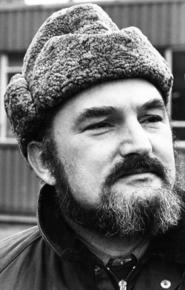The original Bridget Jones
Joan Bakewell revels in Selective Memory, a delightfully self-effacing memoir from frontline feminist Katharine Whitehorn
Joan Bakewell
Saturday October 6, 2007
Guardian
Selective Memory
by Katharine Whitehorn
320pp, Virago, £18.99
It is the aspirin in the suspender I recall most vividly. Along with black ink to disguise laddered stockings, it featured as a slut's remedy in a landmark 1963 Observer article in which Katharine Whitehorn led the charge for women journalists to write as themselves rather than as pale shadows of the men who dominated the field. And here she is setting out how that battle was fought and well-nigh won, long before the shock troops of Germaine Greer and co came surging up with their heavy reinforcements. In her autobiography, her light wit is as delightful as ever, her honesty as unflinching.
Katharine Whitehorn was no "child of the 60s", and that giddy, glamorous era overshadows the decade that went before it, which is often characterised as grim and monotonous. It was no such thing. Rather, it was full of the excitement of positive change. "We had the heady sense that everything was getting better," recalls Whitehorn of the 1950s, and she was where the fun was to be had - in the journalism of the time. She arrived full of confidence and good sense, from an enlightened, left-leaning background. Father was a housemaster at Mill Hill School, later at Marlborough, mother came from a family of Christian socialists, and there was a grandfather who was a founder of both the Peace Pledge Union and the Marriage Guidance Council. She would go on to marry a Quaker novelist and send her sons to Westminster School. Good middle-class professionals all.
But her childhood had not been easy: father dubbed her "pudding", she was bullied at school and ran away from Roedean, showing spirit in the face of rigid and unfeeling treatment. Her self-reliance was remarkable at a time when women were mostly being schooled for home and children. She hitchhiked alone for two months around Europe, took a British Council job in Finland, and drove across America with one of a series of smitten boyfriends. She makes it all sound languidly easy, but only someone of her determination and staying power could have done so much. She would eventually be one of the first and most distinguished of women columnists, writing for the Observer for 30 years.
Her first job was on Home Notes, a trite little publication where she subbed real-life love stories. But it put her into the swim of Fleet Street activity and friendships. Picture Post's legendary photographer Bert Hardy used her as a model for a feature called "Lonely in London", sitting before a gas fire surrounded by milk bottles and drying laundry. The photograph found its way into the Hulton library and was used everywhere. It also got her a job as a cub reporter on Picture Post, where she went out an assignments with photographers, honing her skills writing their captions.
As she tells it, the opportunities came out of sheer luck: Home Notes because she just happened to be in the office when the job came up; covering the Paris fashion collections for Picture Post because an editor had run off with the only other girl on the paper; her column on the Spectator because she bumped into one of its stalwarts, Alan Brien, at a party. It all sounds a bit too light-hearted and Bridget Jones. The record speaks for something more resolute: a lifetime's dedication to a craft of which she became master - the sly, informative, witty and important personal column.
An agenda soon emerged. Her first column for the Observer was about Betty Friedan's The Feminine Mystique, one of the ur-texts of 1960s feminism. "I think my feminism must have been of a pre-war kind," she explains, as she praises a string of strong single women, while acknowledging that at the same time her desire to find the right man for herself. Cooking in a Bedsitter was her practical contribution to women's freedom. She wrote it in three-and-a-half months and it stayed in print for 40 years, sitting not only on my shelf but on Delia Smith's too. This was a time when there were few fridges and no supermarkets, when single girls lived with two gas rings and a saucepan, and 38% of women cooked (cooked!) three meals a day. A series of mini-books followed: How to Survive in Hospital ... in the Kitchen ... Children ... Money Problems. In her mature years she was, not surprisingly, asked to sit on company boards and became rector of the University of St Andrews, while supporting the International Women's Forum. Now, in her 70s, she is Saga magazine's agony aunt.
But Selective Memory is her personal story, too. She did marry the right man, and lived with and loved him for 45 years. Gavin Lyall was a thriller writer, who in later years battled alcoholism. She talks of it with her usual robust good humour, but the pain shows through. It's good that in writing this book she conjures up again their many happy days together, not least on their boat on the Thames, and she talks of her widowhood with a gentle melancholy. Those who knew and loved her columns will enjoy her company all over again, and newcomers will learn of a stalwart, serious feminism that predates the 1960s.
· Joan Bakewell's The View from Here: Life at Seventy is published by Guardian Books
guardian.co.uk © Guardian News and Media Limited 2008
Subscribe to:
Post Comments (Atom)

No comments:
Post a Comment